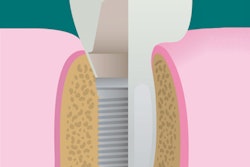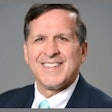
Most people tend to think of persuasion as a form of manipulation. They think that by leveraging your knowledge of the human brain to influence a person's decisions, you are taking advantage of that person. You are "exploiting their weaknesses."
 Jay Geier is the president and founder of the Scheduling Institute.
Jay Geier is the president and founder of the Scheduling Institute.It's true that persuasion has been used in greedy, evil ways for centuries. But as a healthcare provider, you can use these psychological "superpowers" for good. For instance, if you can persuade your patients to say "yes" to the treatment they need, you can help save them from avoidable problems and pain down the road.
Years ago, when I started working on how to get doctors to improve their conversion rates among patients, I researched any number of theories, and Robert Cialdini's six principles of influence is by far the best. And it is what we recommend to our clients.
By mastering the science of persuasion and employing it in an ethical manner, you can significantly increase the chances that your patients will say "yes" to the treatment they need. This is a huge win-win for you and your patients.
In this, the first of a two-part series, I will cover the first three principles of influence: reciprocity, scarcity, and authority.
1. Reciprocity
Chances are, you've been on either end of this principle before. Don't believe me? Well, have you ever taken someone out to dinner before asking them a favor? Have you ever done something nice for someone because they've recently done something nice for you? That's reciprocity. It's the idea that people are more likely to say "yes" to somebody they feel they owe.
Here are a few simple ideas of how to implement this principle in your office:
- Offer each patient a cold beverage.
- Hand out new patient gift bags.
- Provide special amenities such as warm neck pillows, paraffin treatments, or massages.
It's important to remember that the size of the gift or favor is unimportant. It's the idea behind it that drives this principle.
2. Scarcity
Have you ever been shopping and found something you liked -- only to realize it was the last one in stock? Suddenly, something you liked became something you love! Its value increases almost immediately because of the law of scarcity.
“The law of scarcity states that people want what they can't have.”
The law of scarcity states that people want what they can't have. Things that are rare. Things that are difficult to obtain. You'll see this law demonstrated anywhere from limited-edition silver coins to "Last chance to save" sales. Scarcity drives people into action.
We are motivated more by the idea of losing something than the idea of gaining something. The language used in your case presentation should leveraging this fact.
Instead of saying, "This is the healthy thing to do, etc.," you should present the avoidance of loss: "Do X in order to avoid Y problems in a few months." Another example is, "I can get this done for you right now, but I am booked later this afternoon." In other words, do it now or who knows how long you'll have to wait. Because your patient suddenly perceives this treatment or its immediate availability as scarce, it has become much more desirable. You've significantly increased the chances of a "yes."
3. Authority
The principle of authority states that people will follow the lead of someone who they believe to be a credible, knowledgeable expert. Think about what a uniform does for police officers and military personnel, or what a white lab coat does for healthcare specialists. So, how can you leverage this to increase patient compliance during case presentations?
Here are a few different ways to increase your perceived authority:
- Start by dressing like an authority. If you don't look like a doctor, you are actually shrinking your authority.
- Hang your diplomas, certificates -- anything relevant to your knowledge and expertise as a dentist -- on your walls where patients will see them. These documents will boost your credibility and authority.
- Have a team member establish your authority through an introduction to the new patient. Be sure this person states your credentials.
- Keep in mind that referral patients have been told by a respected friend that you are the best. That's a great set up for your authority. They come in expecting to say "yes" to treatment. Don't bungle that opportunity.
My next column will focus on the next three principles of influence. In the meantime, practice leveraging the laws of reciprocity, scarcity, and authority to positively influence your patients to say "yes" to the treatment they need.
Jay Geier is the president and founder of the Scheduling Institute.
The comments and observations expressed herein do not necessarily reflect the opinions of DrBicuspid.com, nor should they be construed as an endorsement or admonishment of any particular idea, vendor, or organization.


















